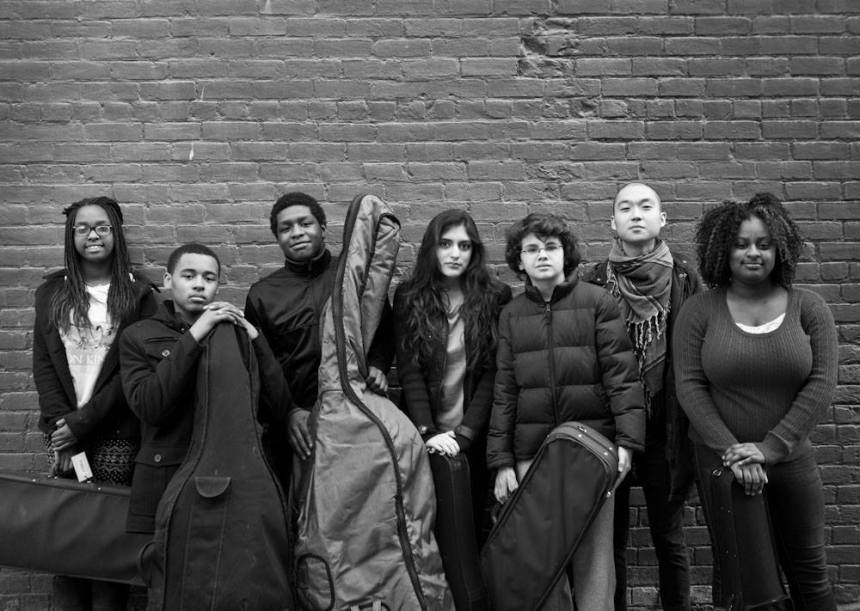
This was a difficult year at our high school. We lost two students and several recent graduates to suicide. The losses weighed heavy on our community, and students responded with petitions and other initiatives calling for less stress, more understanding, and more help dealing with mental illnesses, especially anxiety and depression.
The student newspaper ran an article headlined, “Does Mounds View have a problem?” — and I think we were all starting to think the answer might be yes. Many of our students are very driven, sleep-deprived and stressed out, and perhaps it’s gone too far.
But then the past few weeks happened. The shocking news that suicides are up 25% in our country since 1999 — and up 40% in our state. Then Kate Spade. And Anthony Bourdain.
And suddenly it seems the problem is not ours — not our school’s, specifically — but our nation’s problem, our culture’s problem. What are we doing to ourselves? Why is despair on the rise? Why are so many people living in misery behind their shiny facades?
When I talked with other teachers at the AP Economics reading in Cincinnati last week, they said their students are having the same experience — the same ramped-up ambitions, the same flagging high school spirit, and the same struggles with anxiety and depression.
Welcome to the hyper-competitive, unsustainable, empty-feeling 21st Century. I felt so hopeless. How can we change our schools and communities and combat this malaise?
But then I found a ray of hope in Eddy Kwon.
Eddy, a former student, had reached out through Facebook earlier this year, and when I found out he was living in Cincinnati, I suggested we meet up while I was there grading. We had dinner, and he filled me in on his past 10 years.
Let me say first that Eddy was an amazingly talented high school student — a musician, an actor, a writer, an editor, an all-star at pretty much everything he did. Like many of our high-achieving students, he could have done anything. He went to the University of Cincinnati to study classical music and conducting, but he soon realized it wasn’t a good fit.
So he started doing other things. Playing gigs around Cincinnati. Engaging in social activism. Changing his major to jazz. His pursuit of a purpose led him to help found MYCincinnati, a free after-school youth orchestra in west Cincinnati, and he became the director in 2015.
The program — which uses music as a vehicle for social change — has grown from 11 students its first year to 120. The staff — once two people — is now 15.
A few days after we had dinner, I got to see some of Eddy’s MYCincinnati students perform during a show called “Lost Generation” at Cincinnati’s Fringe Festival. The students’ music was beautiful, haunting and professional, and it was obvious that they adore Eddy.
More pertinent to the topic at hand, it was obvious to me that Eddy finds his work (and his life) deeply meaningful. Here is this stellar young adult, who had every opportunity to “get ahead” financially, build a huge resume and rack up big credentials in our society, and instead he’s built a life based on purpose.
He told me about the work his group is doing to give students a place to belong, help families achieve homeownership, and build community in Cincinnati’s underserved Price Hill neighborhood. He also told me that he’s worked long hours for many years for not so much pay, but that’s OK.
I asked Eddy what motivates him, and he said: “I’m motivated by the idea that ‘small is all’ — that, like fractals, the micro reflects and shapes the macro. There are many avenues of social and political change that I cannot access. But, through engagement with my own, personal creative practice, I can find a deep, transformative, and life-affirming peace. I can share this process with my students, and together, slowly, we can create the kind of community in which we want to live.”
That’s it. Eddy is one of the most accomplished, most content young adults I know — and yet none of what he is doing fits this checklist-for-success approach our teenagers have bought into. His life, his work, is the exact opposite of what our students think they want for their lives.
After our conversation, I wanted to box him up and bring him home, so I could share him with our school community (and the world). I want our students to hear his story so they can start thinking differently about success — and who they want to be in this world.
Eddy’s path isn’t for everyone. I know that. I’m not suggesting that the solution to our growing collective despair is for us all to renounce “highly competitive” colleges and professional careers and become community activists.
But I think his story has something to teach all of us — as teachers and parents — about how we talk to young people about their futures and who we use as role models. Success isn’t a TV show or a powerful position or a big paycheck or a fat resume. That’s clearer than ever. It’s finding something you truly believe in and dedicating your life to it, and Eddy has found it.
Learn more about MYCincinnati: Shostakovich Concert, Snatch Me Up, Ziyad’s Story.
I also have a former student who comes to my college classes to discuss his very active role in Conscious Capitalism. I agree that bringing in former students can inspire our students and also reassure them that there are many paths to happiness.
LikeLike